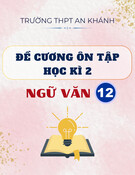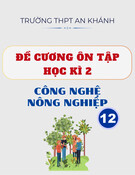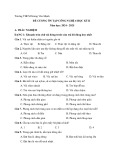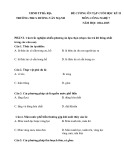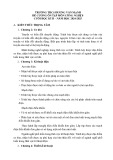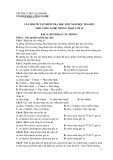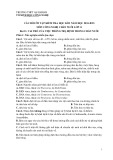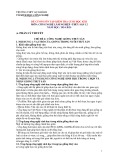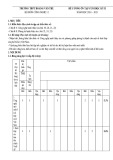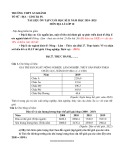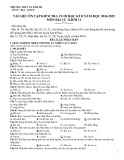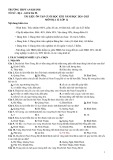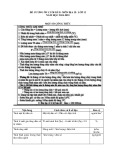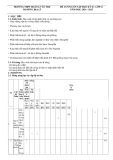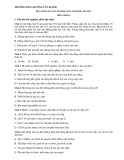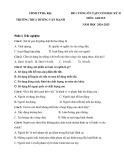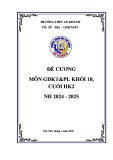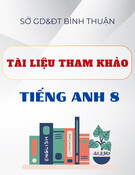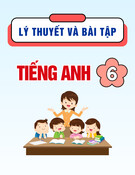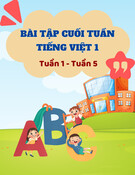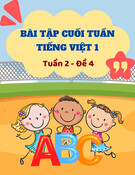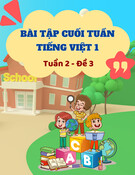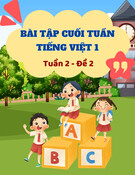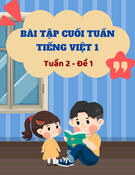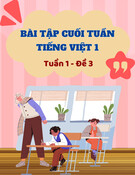
UBND THÀNH PHỐ VŨNG TÀU
TRƯỜNG THCS LƯƠNG THẾ VINH
ĐỀ CƯƠNG ÔN TẬP CUỐI HỌC KỲ II
MÔN: TIẾNG ANH 6 - NĂM HỌC: 2023 – 2024
A. THEORY
Unit 7: TELEVISION
1. Wh-question words (Từ để hỏi)
+ Công thức
Với động từ thường
Question word + auxiliary + S + V (inf)…?
E.g: What do you eat? (Bạn ăn gì?)
Với động từ be
Question word + be + subject...?
E.g: Where is Peter? (Peter đầu rồi?)
+ Cách dùng
Từ hỏi
Mục đích
Who
Dùng để hỏi về người.
Whose
Dùng để hỏi về chủ sở hữu.
Where
Dùng để hỏi vị trí và địa điểm.
When
Dùng để hỏi về thời gian.
Why
Dùng để hỏi nguyên nhân và tìm lí do.
What
Dùng để hỏi về sự vật, việc điều chưa biết.
Which
Dùng để hỏi về sự lựa chọn.
How
Dùng để hỏi cách thức, tình trạng.
+ Một số ví dụ cơ bản
Who do you like? (Bạn thích ai?)
Whose car is this? (Chiếc xe này của ai?)
Where is the bus stop? (Trạm xe buýt ở đâu?)
When is his birthday? (Sinh nhật của anh ấy là khi nào?)
- Với how ta có thêm dạng câu hỏi khi đi với tính từ hoặc trạng từ
How + adj/adv...
How much : để hỏi số lượng, dùng cho danh từ không đếm được
E.g: How much time do you spend on English every day?
(Bạn dành bao nhiêu thời gian cho môn tiếng Anh hằng ngày?)
How many : để hỏi số lượng, dùng cho danh từ đếm được
E.g: How many brothers and sisters do you have? (Bạn có bao nhiêu anh chị em?)
How often : để hỏi về sự thường xuyên
E.g: How often do you visit your grandparents? (Bao lâu bạn mới đi thăm ông bà?)
How far : để hỏi về khoảng cách
E.g: How far is the school from your house? (Trường học cách nhà bạn bao xa?)
2. Conjunctions (Liên từ)
Liên từ
Cách dùng
and
Dùng để thêm thông tin vào câu nói.
E.g: My brother and I play football.
but
Dùng để nêu lên hai thông tin đối ngược nhau.
E.g: She wants good marks, but she doesn't study hard.
so
Dùng để chỉ kết quả, hệ quả, phía trước so luôn có dấu phẩy.
E.g: It's raining, so I'll stay at home.
Unit 8: SPORTS AND GAMES
1. Past simple tense
a. Tobe : (+) S + Was / Were ( not )
(-) S + Was /Was /Were + not
(?) Was / Were + S ........?
b. Verbs: go, read, ....







